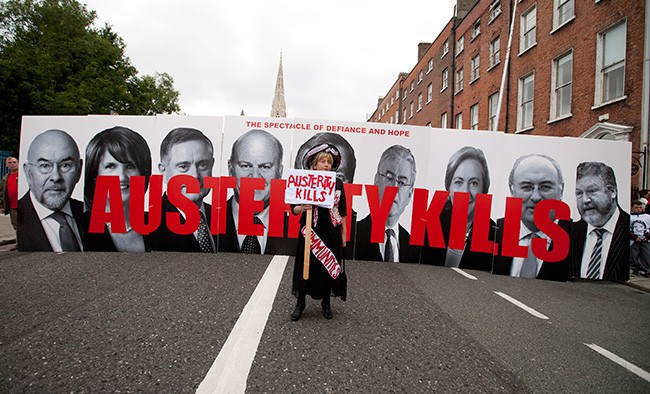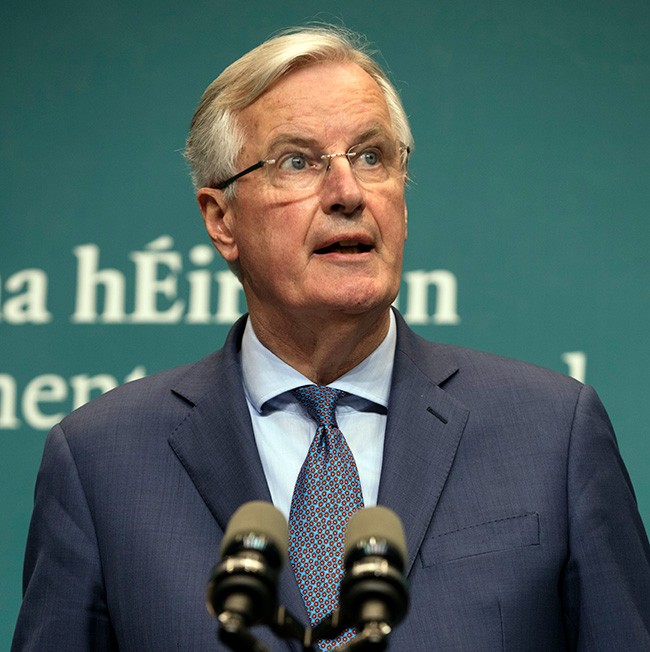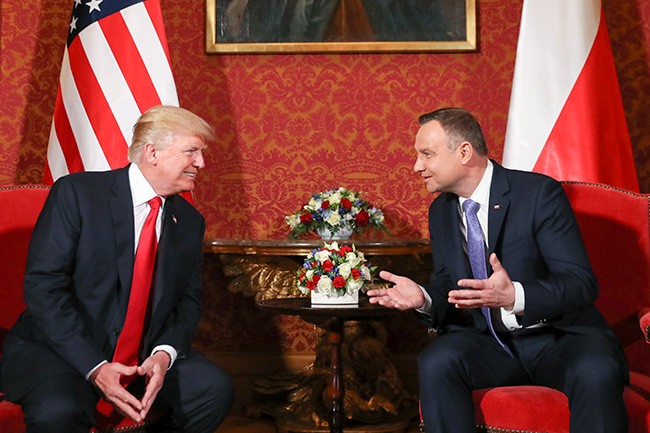7 September 2020 Edition
Capitalism on Life Support

The Corona Virus pandemic brought the global economy to a standstill. Bill Mitchell and Louisa Connors offer an alternative assessment of the policy mistakes and ideological dead ends that got us here, as well as the challenges that await the EU as the prospect of another economic crisis grows.
Governments in an ideological bind
Governments all around the world are now caught in an ideological bind of their own making. This is no more apparent than among the Member States of the Economic and Monetary Union.
For several decades now, governments have courted the prognostications of mainstream economists who preached the religious message of austerity. Like all snake-oil evangelists, their purpose was to enrich a few and undermine the fortunes of the many.
For years, orthodox economists have told their political masters that fiscal deficits are dangerous and likely to trigger accelerating inflation.
They have claimed that government borrowing would drive up interest and undermine productive investment opportunities by private firms and would also enslave future generations with onerous tax obligations as they would be forced to ‘pay the debt back’.
Supranational organisations like the International Monetary Fund (IMF) have promoted the preposterous notion of ‘growth friendly austerity’, misleading many into believing that if their governments reduced spending, growth would follow.
Claims of austerity-led growth have been presented under the guise of an elaborate chicanery called ‘Ricardian Equivalence’, which holds that a smaller government deficit leads people to think their future taxes will be lower and so reduces their inclination to save. The ensuing private spending frenzy, so it is suggested, offsets cuts in public spending.
What all of this really represents, however, is the abandonment of the cardinal rule of macroeconomics - that spending equals output equals income and drives employment.
Why would people increase spending just as their jobs disappear? Why would firms invest in new productive capital if sales are drying up?
In actual fact, interest rates around the world have continued to fall and now governments are borrowing at negative interest rates over long horizons, despite holding much larger debt piles.
Mainstream economists shroud their absurd claims in long equations and complex technical terms like ‘optimal micro founded principles’ or ‘infinitely lived maximising agents’. At the core of these claims is a rotten set of interrelated lies; a set of propositions that bear no application to how real-world economic institutions work.
The application of orthodox economic models to real world crisis has very poor predictive outcomes. In fact, the mainstream response to these crises – austerity – has created economic stagnation and imposed untold hardship on millions of people.

• When will they start demanding a renewed bout of fiscal austerity?
Capitalism on life support
Austerity, and so-called ‘trickle down’ economics, has actually redistributed national income away from workers, towards profits and higher income earners, producing increased inequality and poverty.
Many nations around the world entered the pandemic in various states of bad shape. The degradation of public infrastructure, and institutions has been decades in the making, and the Global Financial Crisis – created in part by orthodox economic prescriptions that reduced government regulation and oversight – exacerbated the fault lines in world economies.
The dissonance we see now, given the long-held ideological views of ‘small government’ and ‘free markets’ is massive. Governments are being forced to dramatically alter course with respect to fiscal and monetary policy.
It is now obvious that Capitalism is on life support and the public sector and fiscal policy is the only thing keeping it from death’s door.
Governments, with the neoliberalism infestation firmly embedded in their DNA, are now shifting uncomfortably, as they are forced to abandon their ‘sound finance’ precepts as millions of jobs disappear and the degraded health systems become the last line of defence against the deadly virus.
While politicians initially talked about a V-shaped episode, a brief hibernation followed by a robust return to ‘normality’, it is now obvious as second waves hit, that much larger fiscal support will have to be provided for the decade or more ahead to nurse our economies through this disaster.
In other words, everything these governments have been telling us up until now has been turned on its head.
The interesting thing is that progressive political parties have also been left in no-person’s land. Their embrace of the neoliberal mantras fed to them by the mainstream economists only served to alienate their core constituents. As a consequence of their dallying with the neoliberal devil, many traditional progressive parties are now unelectable.
How this tension within government plays out will determine our futures.

• Jacques Delors pushed through a proposal that worked against a common currency
Eurozone - doomed from the start
Nowhere better exemplifies this tension than the Eurozone, which is the most advanced expression of neoliberalism that we have.
The politicians of the 1980s, aided and abetted by mainstream economics, created a monstrosity in the form of the currency union.
All prior studies of potential economic and monetary integration in Europe – the 1970 Werner Report and the 1977 MacDougall Report – concluded that the only viable architecture for a common currency would require a substantial ‘federal’ fiscal capacity, legitimised politically, by a properly constituted federal parliament.
MacDougall intimated that there would be little prospect of such an architecture being agreed upon, given the historical and cultural differences within Europe, particularly expressed by the long-standing Franco-German rivalry.
However, as neoliberalism emerged in the 1970s and became dominant in the 1980s, the agenda changed, and Jacques Delors – full of monetarist zeal – was able to push through a proposal that completely disregarded all the wisdom that had gone before him that had worked against a common currency.
When the European nations sanctioned the Maastricht Treaty, the fortunes for Europe turned for the worst. They agreed on a dysfunctional architecture that no working federal system, such as Australia, the US, and Canada, had ever contemplated.
And because they left the fiscal capacity at the Member State level, the historical enmities and suspicions, particularly the north-south divisions, then led them to introduce unworkable fiscal rules that put that capacity in a straitjacket and left the nations exposed to global economic fluctuations.
Further, the currency issuer, the European Central Bank (ECB), was also constrained by Treaty restrictions on government bail outs.
The 2008 Global Financial Crisis (GFC) demonstrated that the system was unworkable.
While the European Commission enforced – for the most part – their fiscal rules, the ECB embarked on a strategy of ‘funding’ Member States’ deficits (except Greece) through the back door using the cover of quantitative easing and alleged liquidity operations.
This was a charade. The ECB was actually buying government debt in multiples more than was necessary to manage the liquidity needs of the money markets. Everyone knew they were keeping the government bond spreads low so that Member State governments could remain solvent.
The bond investors knew they could safely buy the bonds that were being issued by governments facing adverse economic circumstances and off-load them to the ECB in the secondary market at a tidy profit.
Thus, Italy avoided insolvency in 2012, as did other Member State governments subsequently.
However, these arrangements violated the terms of the Treaties; agreements reached through a series of nods and winks kept the system afloat.
Even though the European Court of Justice declared the ECB’s bond buying not to be in violation of the Treaties, the reality was that the only way the common currency survived the GFC was through the unlawful conduct of its main monetary institution.
And the elites looked the other way rather than face the reality that would see the system collapse.

• Brexit will clearly damage the European economy despite all the posturing to the contrary by Michel Barnier and his cohort in Europe, and the Remainers in Britain
Enter the pandemic
This tension is now being pushed to further extremes.
Europe has several challenges all of which go to the heart of the existence of its institutional arrangements:
1. The pandemic.
2. Brexit.
3. Poland (and Hungary).
The re-election of President Andrzej Duda in Poland directly challenges the authority of the European Commission and it remains to be seen how that plays out. The Commission has already been seriously compromised by human rights abuses in the east of its ‘realm’ and has looked the other way. How long it can do that as the new government in Poland ups the ante?
Brexit will clearly damage the European economy despite all the posturing to the contrary by Michel Barnier and his cohort in Europe, and the Remainers in Britain.
The departure of Britain favours that nation and leaves a huge hole in the European economy. Barnier’s bluff has not worked and more and more people are working that out. We will see how that pans out in the coming years.
However, it is the pandemic that threatens the architecture of Europe the most.
This time, the European Commission has been forced to relax the fiscal rules to allow Member States to salvage something from the devastation the virus has wrought. So, for a time, the tyranny of the Excessive Deficit Mechanism is being held in abeyance and the way is clear for Member States to spend up.
The evidence from the March-quarter national accounts shows that while the declines in GDP “were the sharpest declines observed since time series started in 1995” only the build-up of inventories contributed to growth.
In other words, in a period where the private sectors of the Member States were in melt down as a result of the lockdowns and it was obvious that GDP would take a huge hit, the sector that could have stepped in to the breach – I rephrase – should have stepped in to support employment and incomes – was absent.
So, even though the fiscal rules have been relaxed, governments appear to be reluctant to increase their spending, so hard-wired is the austerity mentality.
However, the scale of the downturn will cause fiscal deficits to rise well beyond the thresholds allowed for under the Stability and Growth Pact.
Which raises the question: How long will the European Commission wait before they start reasserting the neoliberal line and push Member States into austerity consolidation under the aegis of the Excessive Deficit Mechanism?
And then we have the ECB, which has been buying large quantities of government bonds for years under its various Public Asset Purchasing Programs, and, let’s say it as it is, funding the Member State deficits and keeping them solvent.
As a result of the pandemic, it introduced an additional bond buying program - the Pandemic Emergency Purchase Programme (PEPP) – which has seen it purchase billions and violate proportionality expressed in the capital keys (the nations’ individual contribution to ECB capital).
We are not criticising the ECB for doing that. They know there is no choice. Either fund the deficits or allow nations to go broke and see the disintegration of the common currency.

• Polish President Andrzej Duda's re-election challenges the authority of the European Commission
The point is that the scale of this crisis is so large that the fiscal rules cannot be reimposed and the ECB cannot taper its PEPP or other purchasing programs for the foreseeable future – a decade or more.
And these initiatives are not delivering prosperity. Their function is to stop insolvency. That is the priority of the European monetary system - to defend the interests of capital at the obvious expense of workers.
The Eurozone architecture can never deliver sustainable and widespread prosperity. It can keep nations solvent, but that is all. And it has to either disregard or defy the legal structure of the arrangements to achieve that.
It is a system that survives because the key institutions break the law!
The tension now is that this sort of law-breaking, life-support will have to endure for years. How long can the patience of the neoliberal elites endure?
When will they start demanding a renewed bout of fiscal austerity? How long will they let government debt levels rise? How long will the ECB continue to buy unlimited quantities of debt from government and the corporate sector?
These sorts of questions, in general, are providing tension for all governments. but they are especially relevant for Europe because it went further than most into the neoliberal gutter.
It is clear we are amidst a paradigm shift in macroeconomic thinking as Modern Monetary Theory (MMT) exposes the fallacies of the mainstream approach. As that shift continues to gather pace, the prospect of a return to neoliberal policies becomes less likely.
And that means the architecture of the Eurozone becomes unjustifiable and nations will see the benefits of breaking free and achieving a greater degree of self-reliance without the fear of flying squads of mindless European Commission technocrats descending on their treasuries bullying them into cutting spending that helps the most disadvantaged.
We will be wiser of its causes in due course, but the evidence is mounting that our disregard for the natural environment that we plunder for material gain will be a prominent explanation. •
William Mitchell is Professor of Economics and Director, Centre of Full Employment and Equity, University of Newcastle. He is also Docent Professor in Global Political Economy, University of Helsinki. He is a co-founder of Modern Monetary Theory.
Louisa Connors is a senior research fellow in the Centre of Full Employment and Equity, University of Newcastle. She has a PhD in cognitive linguistics and researches issues relating to framing, language and ideology.



